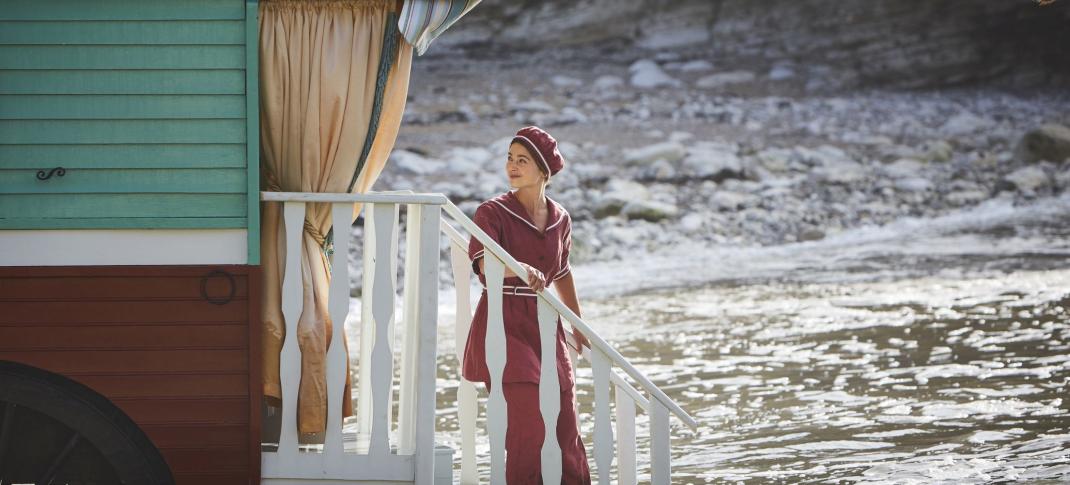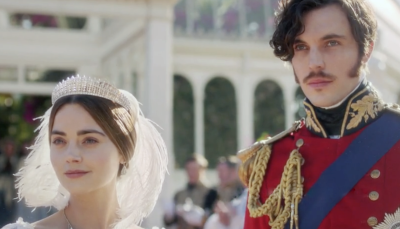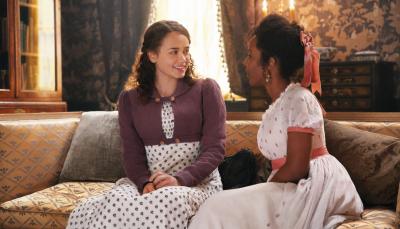Know Your 'Victoria' History: “Et in Arcadia”

MASTERPIECE Victoria, Season 3 Episode One Sunday, January 13, 2019; 9-10pm ET Revolution sweeps across Europe and pressure builds on Victoria with new arrivals at the Palace. Picture Shows: Queen Victoria played by Jenna Coleman For editorial use only. Courtesy of Justin Slee/ITV Plc for MASTERPIECE
©Justin_Slee 2018
Think you know the history of Queen Victoria's reign? Wondering how much of the history portrayed by PBS series Victoria is accurate?
We take a look at the truth behind the drama in the third episode of Season 3, "Et in Arcadia."
Was King Edward VII Dyslexic?
One of the primary sources of marital strife this week between Albert and Victoria is how they raise little Bertie. Victoria, as is the show's wont, has a more enlightened view towards her children and their educations than the real Victoria probably held. Albert, on the other hand, is shown to be a strict taskmaster who finds his son's idea that "England has Queens" distressing. Meanwhile, the show suggests the future King of England's troubles have a modern source. He's dyslexic.
Histories all agree Bertie grew up to be a prince who was far more interested in indulging in his pleasures than living a life his subjects could aspire to. It is said he rarely read books, but he loved the arts, including opera, dance, and theater. His lack of intellectual curiosities was a subject that never sat well with his father, and his numerous scandalous affairs upset the family. Supposedly, the last time Bertie saw his father before the latter's sudden demise what when Albert came to reprimand him for sleeping with an actress. The show's supposition that Bertie's dislike of books comes from dyslexia is certainly a bit of a stretch. But considering how smart (and good at being king) Edward VII turned out to be, it's as good an explanation as any for his dislike of reading. At any rate, even if the reason isn't strictly provable, the strained relationship between father and son is real.
Who Was Lajos Kossuth?
This week, Palmerston angers Victoria when he welcomes the Hungarian nobleman Lajos Kossuth (also known as Louis Kossuth) to the U.K. after he was deposed as Governor-President of the Hungarian Republic, which he had only just been carved from the Austrian Empire a few years prior. This is all actually true, there is just one small discrepancy. It didn't happen in 1848.
Kossuth was born an impoverished gentry nobleman who used his oratory skills to work his way up in government. A lawyer, journalist, politician, and statesman, he was considered one of the most exceptional speakers of the era, and he put those abilities to good use, leading the Hungarian revolution of 1848. He ruled the newly formed Hungarian Republic for two years, but his skill at politics was nowhere near his talent at inciting rebellion, and by 1850, he was on the run. After being arrested, deported, and once again escaping, he first went to the U.S. and spoke on the importance of democracy all over the antebellum North. Then in 1852, he traveled to Great Britain. Palmerston, who at the time was in a spot of unpopularity, worked hard to get Kossuth to dine in his country house, Broadlands, as a symbol of support. It was a move that infuriated Victoria so much, she demanded the Prime Minister have his Lordship resign. As we saw this week, the Prime Minister said that would not be possible.
It's actually this incident that made Palmerston famous as someone who defied the Queen and got away with it.
Did Victoria Resent Staying On The Isle of Wight?
This week, the series presents Victoria as thoroughly irritated at Albert's insistence at staying on the Isle of Wight, grumping that she should be back in London. But in fact, nothing could be further from the truth. Victoria grew up visiting the island as a child in the few times she was allowed away from Kensington, which is why she made it her holiday home.
This season introduced Osborne House, a getaway on the Isle of Wight that Albert hones in on traveling to when the Chartist threat peaks. That is accurate, as Victoria and her family did decamp there when hysteria gripped London that reolution was about to arrive. But this wasn't somewhere Victoria was forced to go. In fact, it was built for her and was her favorite place to get away from the pressures of the state, in the same way Queen Elizabeth II has made Balmoral Castle her preferred retreat. Albert and Victoria bought the original house in 1845, and Albert spent the next six years redesigning it from the ground up. The initial main build was completed in 1848, which was when the family started traveling to it on the regular, with the rest of the estate completed in 1851. Victoria didn't resent being there. It was the place she wanted to be whenever she could
Albert put his heart and soul into creating Osborne, and it is considered one of his most personal designs. After he passed away, Victoria kept it as her retreat, staying for longer and longer periods as she aged, and finally passing away there in 1901.




